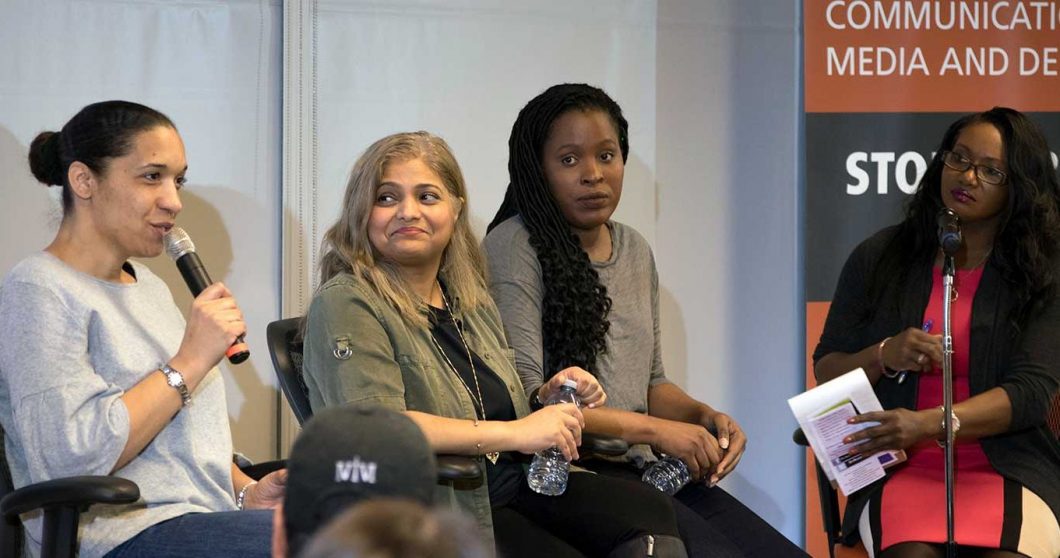Amid all of the sexual-assault allegations and “Me Too” stories surfacing in today’s media, is there space for men in this conversation, too?
Margaret Arnason, research and outreach co-ordinator for Toronto’s Assaulted Women’s Helpline, believes there has to be.
“We can’t progress as a population unless we have the support and help of the other half,” she said. “This is no longer just a woman’s issue.”
She encouraged the young men in the audience to hold one another to a higher standard and call out unacceptable behaviour.
Arnason and two other panelists spoke at “Whose Body is it, Really?,” an event held to discuss the female perspective and experience of the entertainment industry. It took place at Centennial College’s East York campus on March 23 in front of an audience of both male and female students.
Although much of the discussion was focused on women supporting women, one of the most poignant questions of the day was: Where do men fit in?
Mahmoud Amin Adileh, a 3D-animation student, attended the event because he thinks men and women need to work together to combat sexual harassment.
“It won’t help anyone to be segregated or divided,” Adileh said.
Nicholas Kwok, a performing arts fundamentals student, asked the panelists about resources and help for “reformed” men — those who have admitted to past offences of sexual harassment or abuse but are committed to changing for the better.
Kadon Douglas, one of the panelists and a communications and engagement manager at Women in Film & Television — Toronto, says she is open to having these types of conversations with men, and actually welcomes it. She believes there should be more spaces to facilitate this.
Another important matter raised was how sexual abuse affects each woman uniquely. Women from different cultures, women with physical disabilities, and LGBT women face unique prejudice and biases that other women do not.
Lindi Sibongo is a performing arts fundamentals student and was mostly interested in the event to see how intersectional it would be.
“I wanted to see how much of the conversation here today would be about queer women, racialized women or women with disabilities,” Sibongo said. “I feel like they are often forgotten about in this conversation.”
She did feel that the challenges associated with race were discussed in depth. For example, panelist Douglas, originally from Grenada, spoke of her experiences celebrating Caribana dressed in the traditional Mas wear and having people from other cultures oversexualize and even harass her.
Safe resources
However, Sibongo thought the challenges that face LGBT women or women with disabilities were merely mentioned or skimmed over.
Devi Ekanand, the final panelist and a member of the Coalition Music family for 20 years, explained her company’s “50/50 initiative.” The goal is to work towards an equal ratio of men and women in leadership positions.
Sibongo also challenged this. “Even that 50/50 goal implies that half of our population identifies as male and the other half female,” she said.
“What about people who identify as non-binary or transgender? Where do they fit in?”
The panelists also recommended safe resources and organizations in Toronto for women experiencing abuse, such as the Assaulted Women’s Helpline and Dr. Roz’s Healing Place, a centre and safe space for women and children of violence.
“The more we continue to have this conversation and the more we start seeing women in decision-making positions challenge the patriarchy, the sooner we will start to see the shift,” said Douglas.

